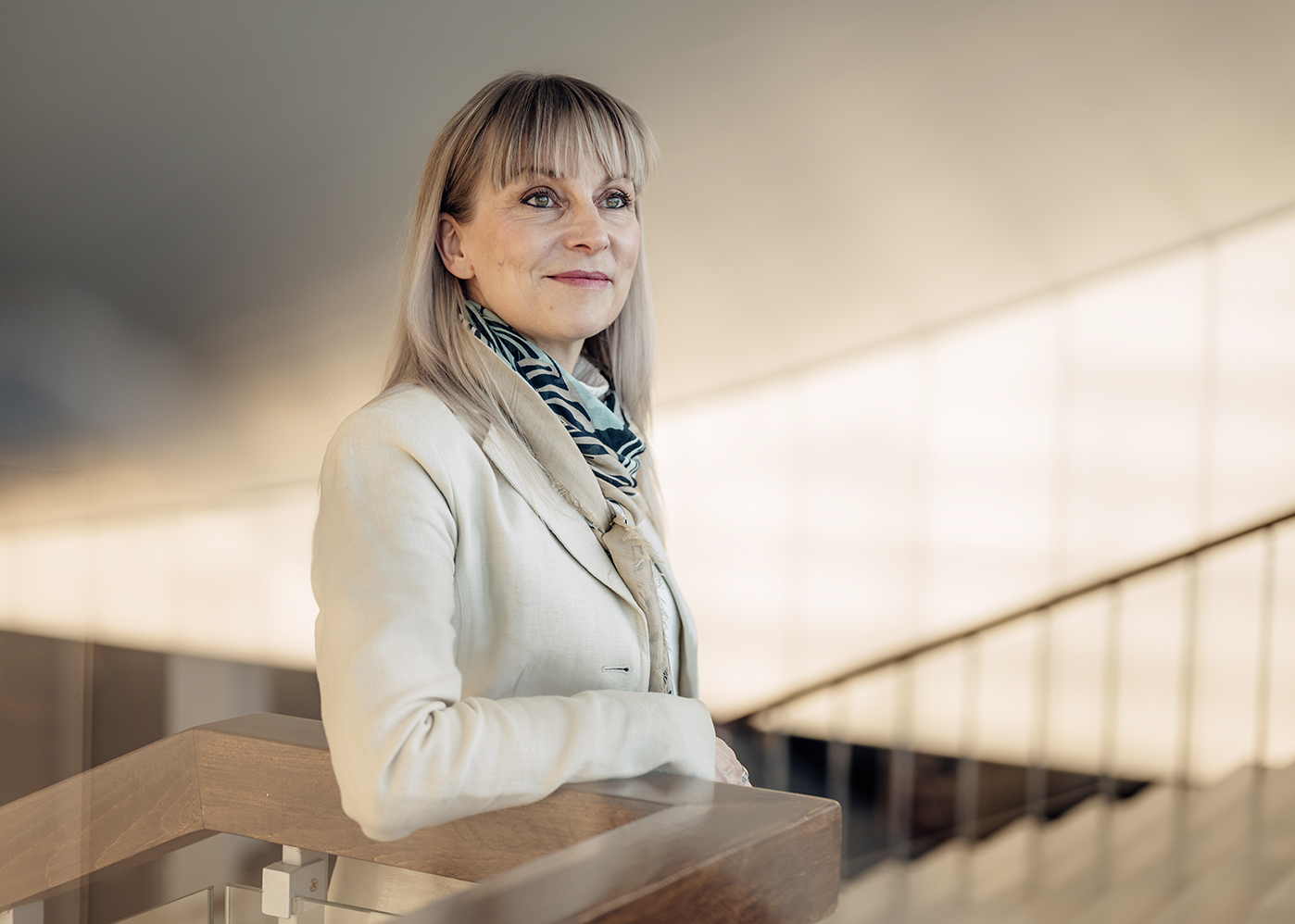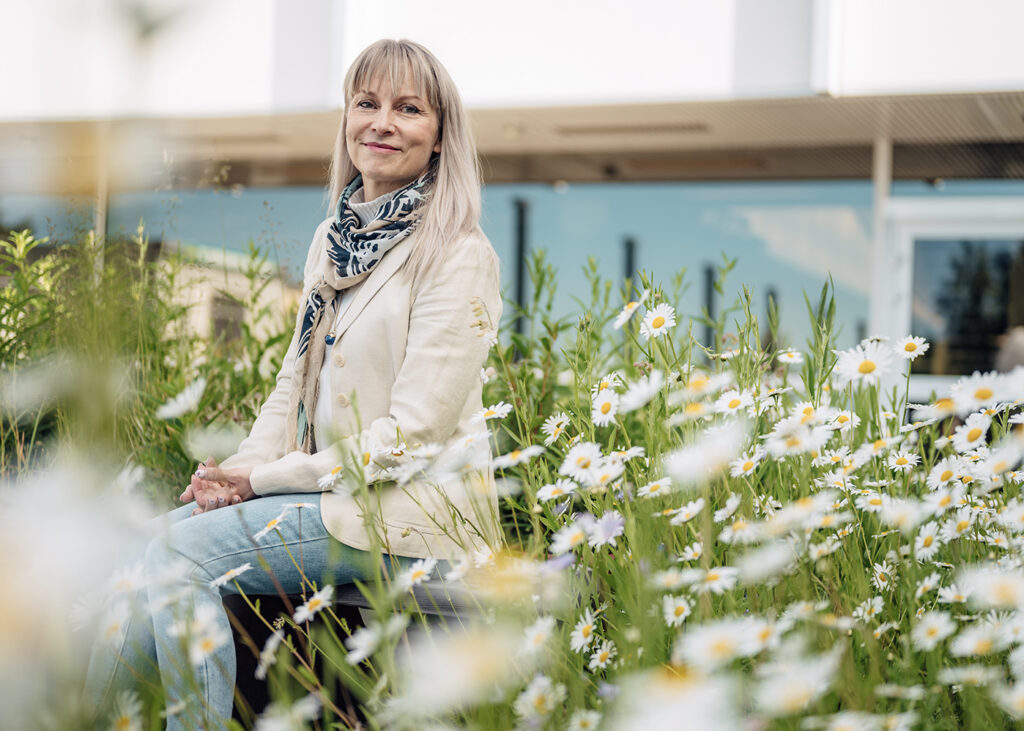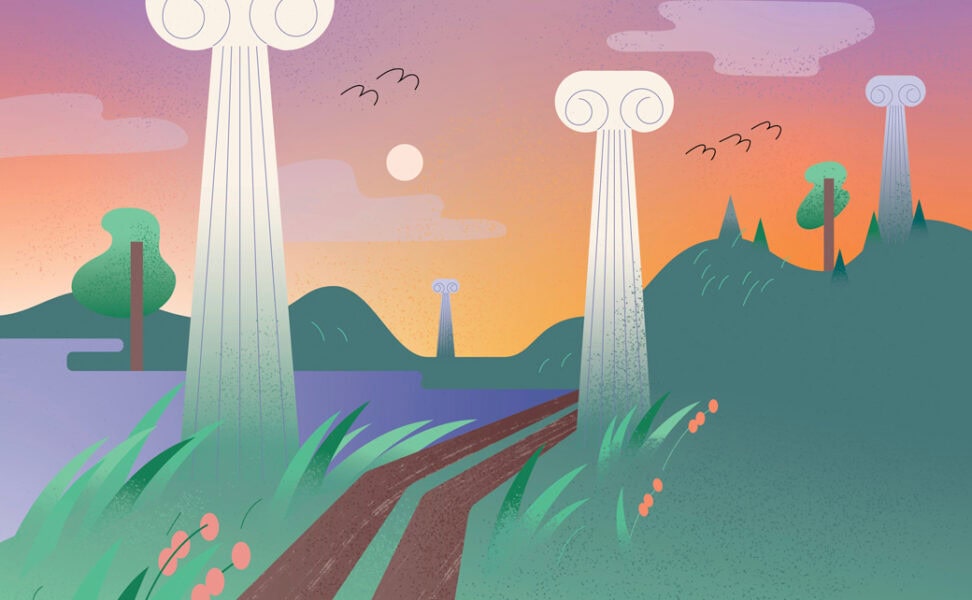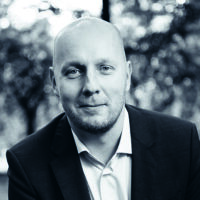
Päivi Hökkä: Learning is more than knowledge and skills
The world and the surrounding universe is such an incredible place from a learning point of view, says Professor of Continuous Learning Päivi Hökkä.
Text Jenni Kleemola Image Eino Ansio english translation marko saajanaho
Working life took its latest giant leap with the move to hybrid work. Päivi Hökkä sees this as merely the beginning. There will be plenty more to learn, and the next challenge is to ensure effective work from an ecological and social standpoint.
“The pandemic was one type of black swan, and the Ukraine war is another surprising event. We must constantly keep learning. A crucial aspect of continuous learning is how to learn to live in constant flux, tolerate uncertainty and unfinished business, and question our own thinking and actions.”
The gulf between science and working life
In May 2021, Doctor of Education and docent Päivi Hökkä was appointed as the Tampere University’s tenure track professor of continuous learning. She started in the position at the beginning of 2022. The position is the first of its kind in Finland.
The goal of the professorship is to bridge the gap between science and working life while helping higher education better meet the needs of society. Global megatrends require continuous learning.
“The main examples of these are the massive technological development and robotisation, but also issues like challenges related to sustainability and green transition. With continuous learning, we strive to respond to the changing competence requirements.”
The main hook learning offers to Hökkä is the way it intersects all levels of society and touches the people – not only is it important to individuals in their daily lives, but also to communities, organisations, and states looking to thrive through challenges.
“Continuous learning is such a huge thing that it is actually a little humbling.”
“Continuous learning is such a huge thing that it is actually a little humbling.”
The theme of work is also present in Hökkä’s personal life. The professor, who has enjoyed singing throughout her life, discovered tango about ten years ago.
Tango has a sound and nuance unlike anything else, and it also presents challenges in terms of rendition, phrasing, and intonation. Competitions have also introduced Hökkä to a certain form of anxiety and new social circles.
“Singing inspires me professionally as well, because it brings learning so tangibly close in all its forms – knowledge, skill, emotion, as a social field, and as an arena to sculpt your own identity.”
Adults learn by working
The Tampere University has a long and storied history in adult learning research and a strong emphasis on social science research. Hökkä believes this is why the professorship was established in Tampere instead of anywhere else.
Previously, Hökkä worked as a researcher at the Jyväskylä University. Hökkä’s research was based on learning at work, which she believes caught the eye of the selectors and was perfectly suited for the professorship.
Discussion about continuous learning commonly highlights our existing structures and systems for ensuring effective learning. Another frequent subject is the kind of training that should be offered.
“According to the latest studies, as much as 80 to 90 percent of learning during an adult’s career happens through work, informally in everyday life.”
“However, there is far less talk about what learning actually means as an adult. According to the latest studies, as much as 80 to 90 percent of learning during an adult’s career happens through work, informally in everyday life. That is the most significant context for learning amongst the working-age population.”
Hökkä’s research brings a holistic viewpoint to working-age learning. According to her, the entire concept of learning often becomes restricted in daily life.
Learning for working-age individuals is not simply acquiring new skills and knowledge. It also involves one’s own professional identity.
“Your professional identity is simultaneously a learning resource and target. It directs and channels your learning, but as the world and working life change, you must also adjust and renegotiate your professional identity.”
“It is astonishing to me how people’s experiences can still be so unique and how the same things can be interpreted in such different ways.”
One thing continues to astonish Hökkä even after all her years of research:
“As researchers, we are interested in creating models or finding regularities. It is astonishing to me how people’s experiences can still be so unique and how the same things can be interpreted in such different ways.”

At the edge of two worlds
In her work, Hökkä gets to experience her research subject in practice. While she is generally familiar with the university as a working environment, Tampere has its own practices, cultures, digital systems, and social networks.
Hybrid work has not given Hökkä many opportunities to mingle with her new colleagues in the break room. Remote connections reduce informal interaction, making integration in a new work community a slower process.
Hybrid work has become part of the daily routine at many workplaces. How does information get transmitted, and how are new ideas and innovations created in hybrid work?
How does information get transmitted, and how are new ideas and innovations created in hybrid work?
According to Hökkä, the universities are facing a tremendous challenge. This challenge is caused by the tension between two dynamics. The primary goal of a university is to produce new information and research-based education, but this goal is challenged by the rapidly changing world requiring measurable results and quick solutions.
“Since the 2010s, result-oriented structuring and efficiency-based thinking have found their way to university management. But science is slow. Critical, comprehensive thinking and producing new information cannot be forced into results you measure quarterly.”
This tension challenges the very identity of university workers, as it forces people to redefine their relationship with their work, academia and science.
“You should be able to prioritise and direct your work towards not only productivity, but also social and human sustainability.”
“You should be able to prioritise and direct your work towards not only productivity, but also social and human sustainability.”
Hökkä describes her own work as ‘cognitively draining’. To counterbalance it, she makes an effort to clear her head by doing something completely different: running, skiing or cycling in the forest, singing, or thinking.
“Astronomy and cosmology fascinate me. Delving into them works wonders for clearing my head and keeping up well-being and learning at work. The world and the surrounding universe is such an incredible place from a learning point of view.”
Päivi Hökkä
- Education: Doctor of Education, docent
- Born: 1968 in Oulu, Finland
- Employment: Professor of Continuous Learning at the University of Tampere since 1 January 2022, formerly e.g., Jyväskylä University researcher
- Hobbies: Astronomy, singing, exercise in various forms
- Family: Common-law husband and two adult sons
- What I learned last: By studying gravitational waves, we may be able to shed some completely new light on the great questions about the birth of the universe, the inflation theory, and the properties of dark matter.

